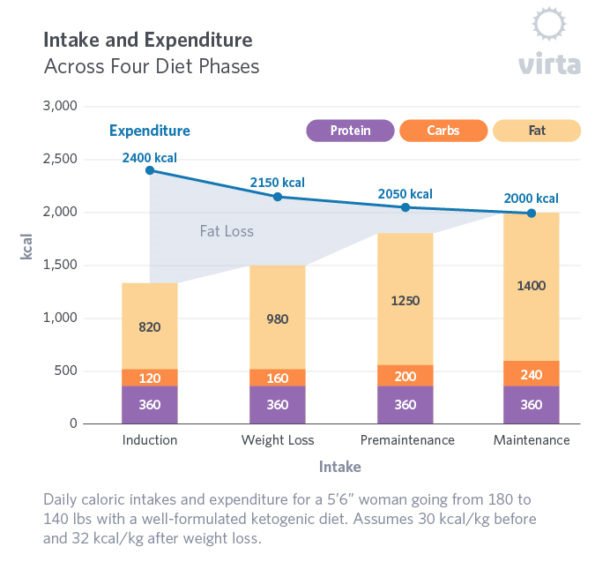I have been ketoing since late last year and doing all the ‘right’ things - not calorie counting, fat to satiety, bacon on tap, eating until comfortably sated.
How much weight have I lost??
NONE!!!
So, I cut out dairy - made a small difference for a short while, but the two kilos that left me then came back with a couple of their friends.
Increased the amount of veggies I am eating, no nuts, good quality fatty proteins, and of course fat - lots of fat.
No weight lost.
In fact I am four kilos heavier than when I started late last year!!!
This is enough to drive a girl to drink and in fact I have replaced my evening meal with a glass of dry white wine to see if that helps.
It didnt.
So I have been searching through the interwebs for some answers.
I came across this graph from Virta Health.
I have a huge amount of respect for the folks at Virta Health - people like Sarah Hallberg, Steve Phinney, Jeff Volek, Peter Attia. These guys know what they are talking about and have the runs on the board with T2D reversal results.
Link to Virta article with this graph https://blog.virtahealth.com/well-formulated-ketogenic-diet/
If this is correct, then those of us that are not losing weight on this WOE may be eating at the right hand side of the graph rather than the left hand side.
I understand the need to provide fat initially for an energy source, but I think I may have found the reason why I am not losing weight, and I wonder if this resonates with anyone else.
I do recall Eric Westman saying once that if your body is HF your diet only needs to be LC.





